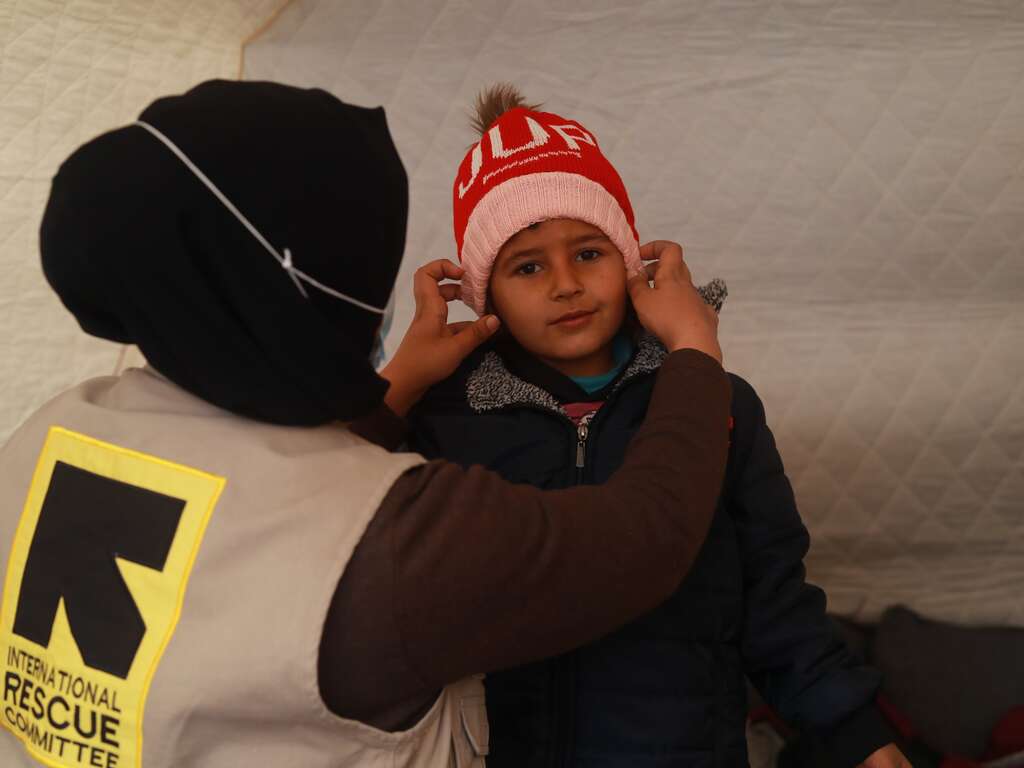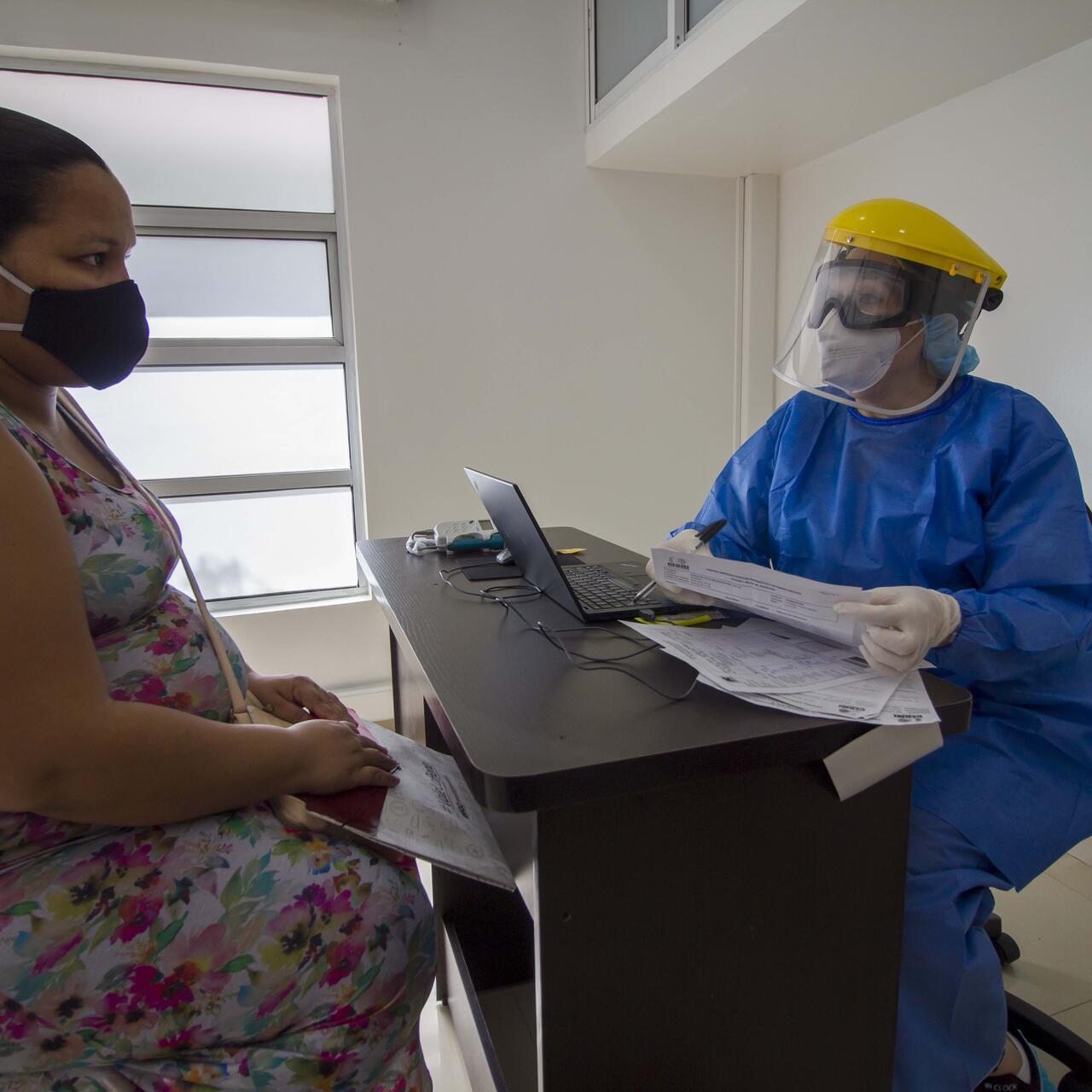
The coronavirus pandemic has put the unflagging dedication of health workers around the globe in the spotlight. For World Health Day 2021, we asked some of the thousands of International Rescue Committee colleagues providing care for people affected by conflict and crisis what they learnt from a year of fighting COVID-19 and what their hopes are for the future.
The first lesson I took from medical school was that health will always be the most valuable thing humans possess.
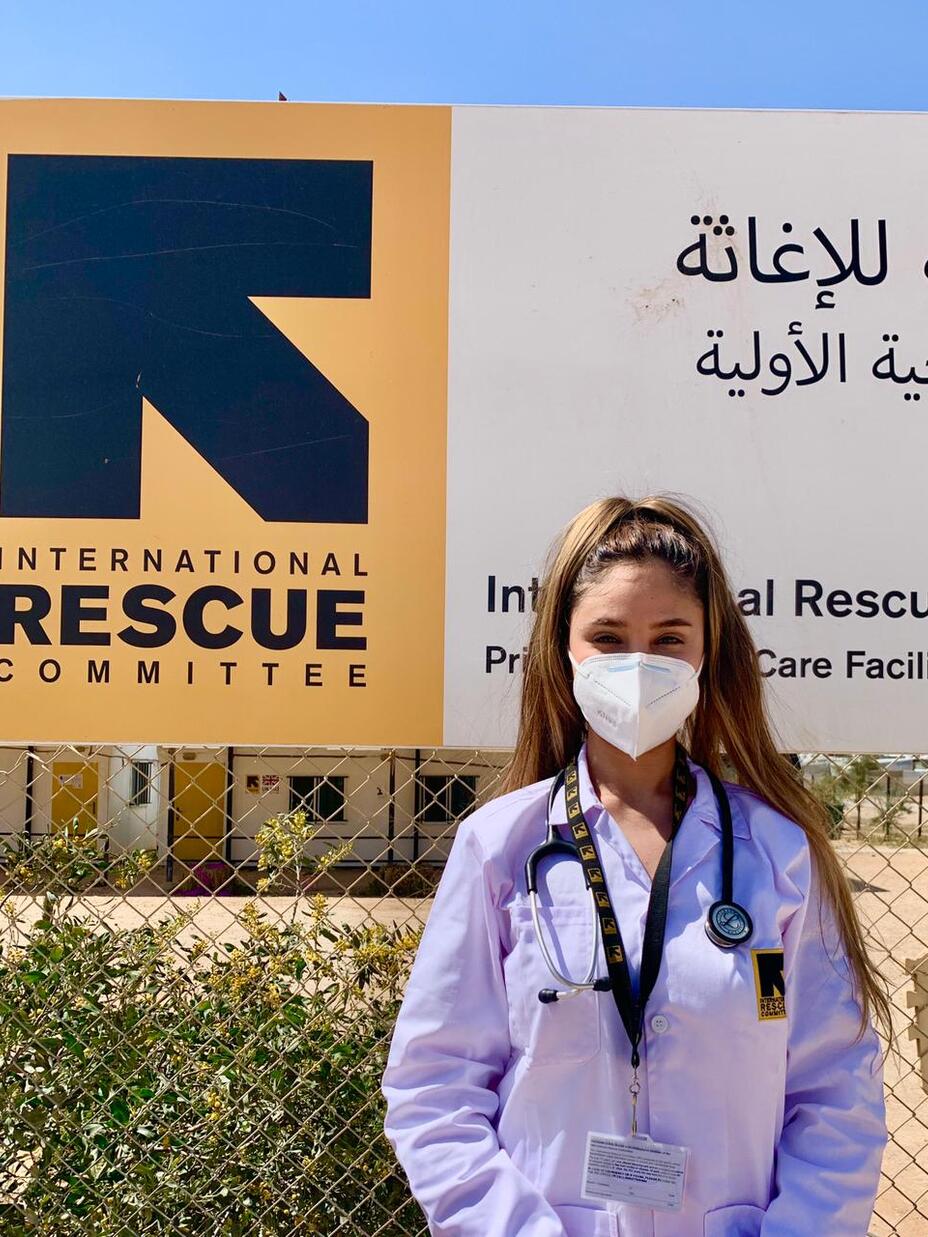
Name: Dr Rose M. Al-Nsour
Occupation: Medical doctor
Country: Jordan
What have you learnt from the past year?
The pandemic completely changed my life as a front-line worker. It taught me to cherish my time and freedom and to find balance through spiritual and physical activities.
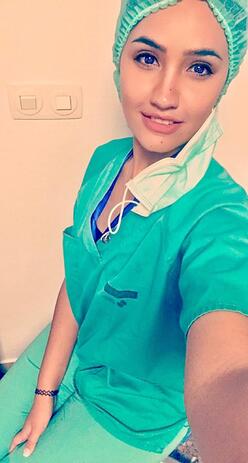
The first lesson I took from medical school was that health will always be the most valuable thing humans possess. I still believe that, and I also learnt this year to cherish what we have and never look for what we lack. The ultimate silver lining was that I learnt to adapt quickly, and so found it easier to move forward as circumstances changed.
What are the challenges for your work going forward?
Front-line workers are also on the front lines of emotion. Every day we face pain and fear, yet we need to give our all to each patient. Life has been rough during the pandemic, and will need time to repair itself.
What are your hopes?
I cherish being part of a hard-working team, helping refugees and others in extreme need of health care. My hope for the future is that the vaccine will be widely accessible and that it will renew hope for us all.
I was reminded of the courage shown by humanitarians and health care workers all over the world.
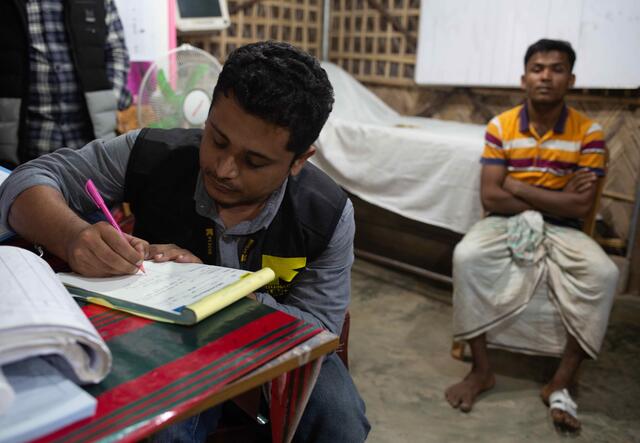
Name: Dr Mahmudul Hossain
Occupation: Clinical supervisor in an IRC primary health care centre
Country: Cox’s Bazar, Bangladesh
What lessons have you learnt this past year?
2020 was a time of change and reflection. I was reminded of the courage shown by humanitarians and health care workers all over the world. The support everyone has shown us has been fantastic. For my own team, the biggest silver lining from this year is seeing how well we work together.
What are the challenges?
The Rohingya refugees I serve in Cox’s Bazar live in a very densely populated community and social distancing is very challenging.
When lockdown happened, we needed PPE (personal protective equipment) and there were not enough facilities to carry out testing for COVID-19. We had only a small number of front-line workers, so if someone got infected and needed to quarantine, we were limited in what we could do. I’m still concerned for the Rohingya communities in these living conditions: Hygiene maintenance is difficult and there is a lack of health education. This outbreak is not finished yet and, for the Rohingya, it could go on for a long time.
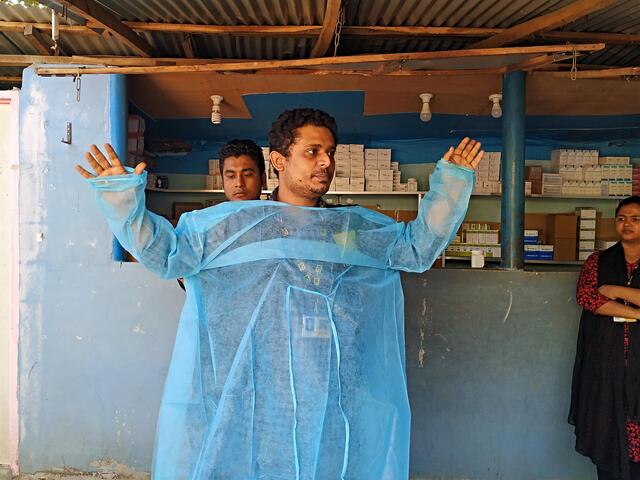
What are your hopes?
There is light at the end of the tunnel and there is always hope. I want to continue to serve humanity. Seeing the outstanding resilience of health workers, even amid the biggest global crisis in years, keeps me motivated.
On my team, we made sure to support each other.
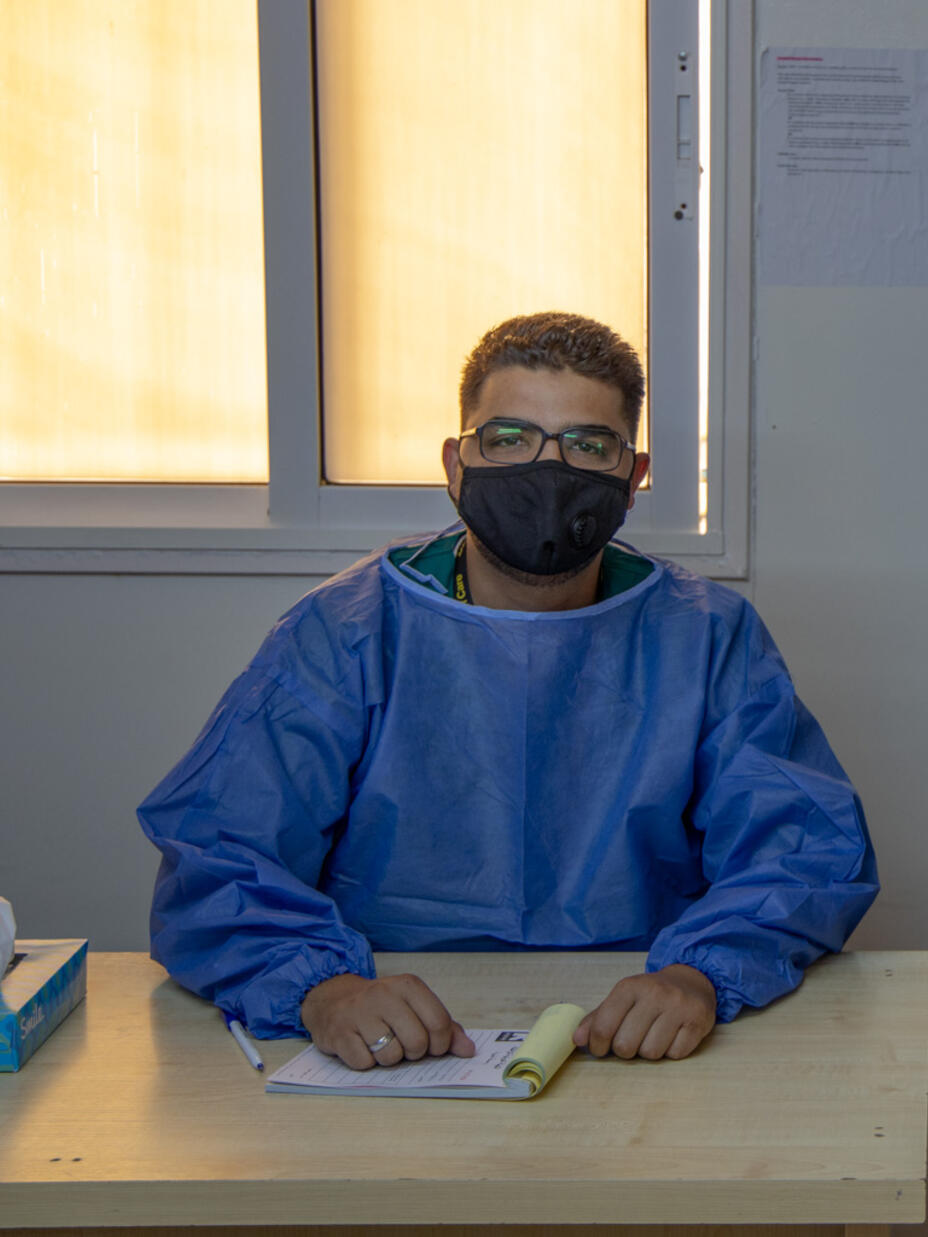
Name: Dr Abedalhaleem Albalasmeh
Country: Jordan
Occupation: Medical doctor
What have you learnt over this past year?
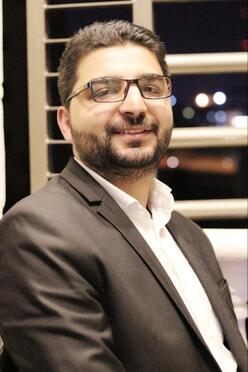
The main thing that I learnt working with the IRC this past year was the importance of our work and health services. I’m proud to be on our team and proud of our mission overall, especially the work at the Zaatari camp clinic.
Good preparation and planning are the keys to success, and expertise should be shared to achieve better results. On my team, we made sure to support each other. This was especially important when our personal lives were impacted by the pandemic; many of us weren't able to go home to our families in case we transmitted the virus to them.
What are your challenges for your work going forward?
My main concern is that the vaccine is available for all populations so we can end this pandemic.
What are your hopes?
I hope for a world without masks. For this virus to disappear, for our world to go back to normal, and to keep our service as the IRC health team going.
I’ve learned not to take anything for granted.
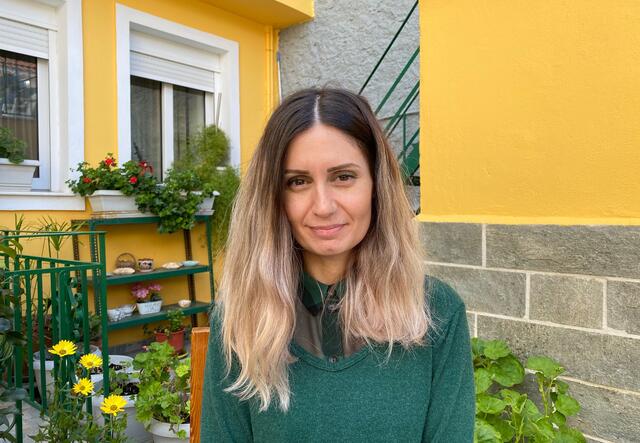
Name: Kiki Michailidou
Country: Greece
Occupation: IRC psychologist
What have you learnt from the past year?
I’ve learnt not to take anything for granted. I’m thinking of the little things that the pandemic has taken away from us, like being able to leave our houses, go for a walk with friends and spend time with loved ones. This loss of freedom is a new and sad experience for all of us.
What are the challenges for your work going forward?
I have concerns over safety and health, concerns about what the future will look like and when and if we’ll go back to normality. The people we support live in a camp that leaves them vulnerable and very exposed to risks. Now, due to the pandemic, they’ve also lost their ability to move freely outside of the camp.
Even under these conditions, the IRC team has increased the support we provide to the people we serve over the phone and ensures that treatment and medication are not interrupted. We’ve also created a helpline for front-line workers, in order to support their efforts and intense workload.
What are your hopes?
One positive that gives me hope this past year is that I got to spend more time with my family, despite the longer working hours. Above all, I hope that we get out of this pandemic without losing any more people and without anyone else losing their livelihood.
I have learned to value "normal" things.
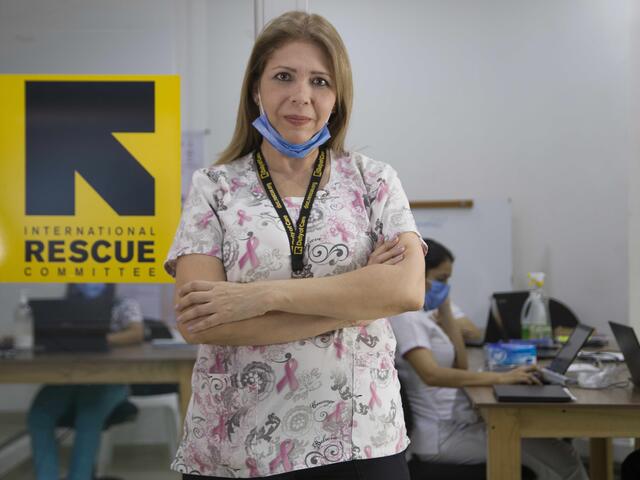
Name: Dr Edna Patricia Gomez
Country: Colombia, originally from neighbouring Venezuela
Occupation: Doctor in the IRC’s clinic for sexual and reproductive health care in Cúcuta, Colombia until March 31, 2021
What have you learnt from the past year?
I have learnt to value "normal" things. In other words, it was normal for us to have our entire family hug and kiss each other, but the moment the pandemic began, the whole context changed. Learning to appreciate this, to give it real value, made me grow as a human being. I learnt to love more.
COVID-19 has also taught me that we need to change our perspectives on what the world needs. We’ve realised that what we need is a stronger health system and more and better-trained personnel.
I hope we have all learnt that, since COVID-19 does not discriminate, we as a society cannot discriminate when it comes to access to health services and support.
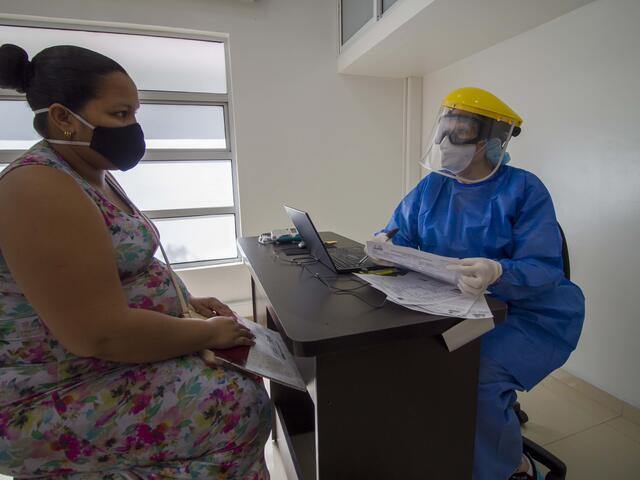
What are the challenges for your work going forward?
As a member of the health sector, the challenge has been huge. Keeping up my mental, emotional and physical health is not easy.
What are your hopes?
I think a lot of it comes down to resilience. You know, when you get out of your comfort zone, you feel scared. I used to work as an obstetrician in Venezuela and, in December, I finally got my accreditation to practice in Colombia. I felt like I was graduating again! But it made me feel scared at the same time, because I was really comfortable working as a general practitioner and now the question was, what to do next? I’m hopeful because I will be able to start, all over again, a career that I started back in Venezuela more than 25 years ago. After these last, almost two, years working at the IRC, I no longer doubt that I’m able to do things.
How the IRC helps
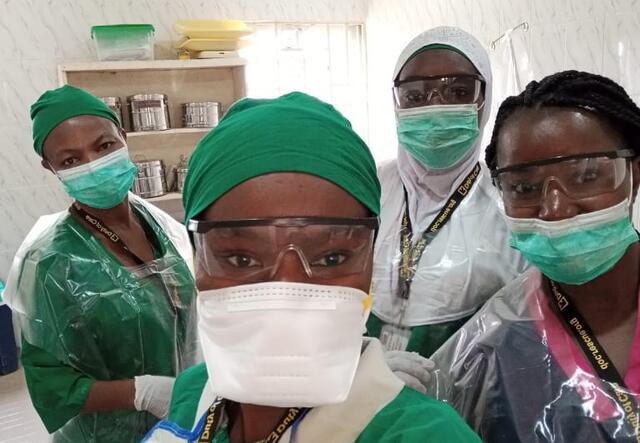
With support from our donors, IRC staff on the front lines have adapted our health services for social distancing, expanded access to clean water, provided remote education to children, and offered cash relief and job opportunities to help families meet basic needs.
In the coming months, we will also play a vital role in training and supporting local health workers to help ensure equitable access to COVID-19 vaccines. Learn more about our COVID-19 response around the world
